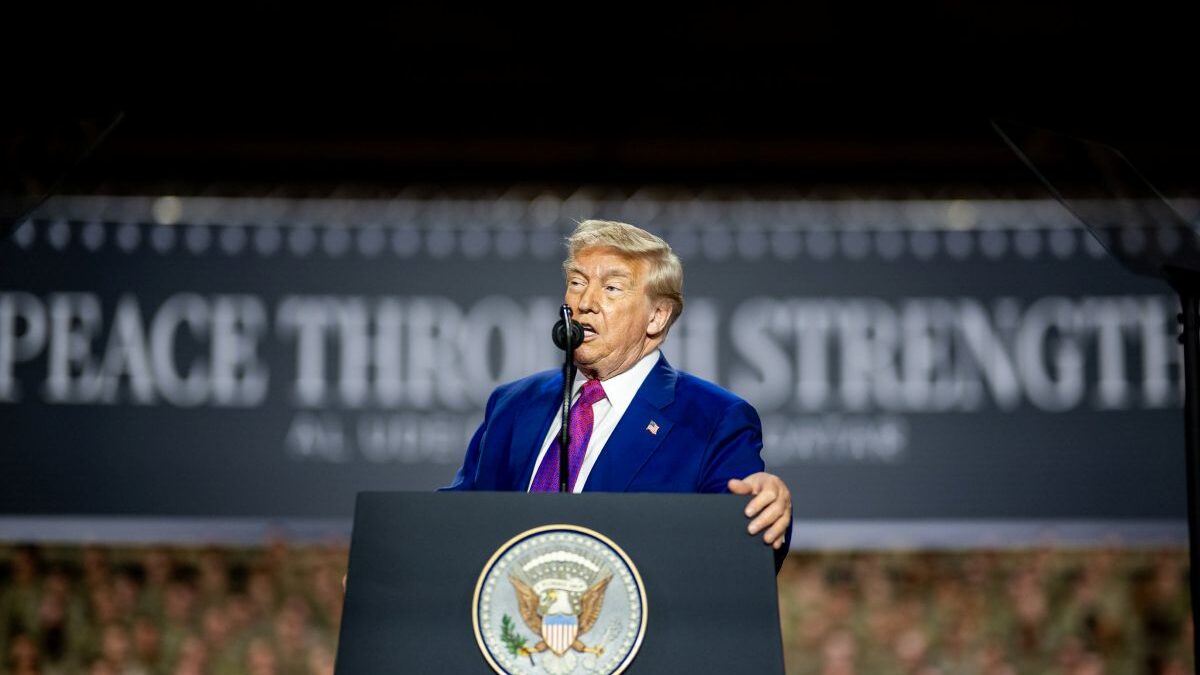
Image Credit
daniel torok/the White House
By Beth Brelje. Media: Thefederalist
You can buy a set of three pads of legal paper, “proudly made in the U.S.A.” by TOPS, for $16.64 (that is, $5.55 per pad). Or go to Simplified and get an imported two-pad set, currently marked down to $22 ($11 a pad).
Simplified is not confident customers are willing to pay much more for its products, so when President Donald Trump put tariffs on China, it went to court to object.
The case was filed in U.S. District Court in the Northern District of Florida, Pensacola Division, on April 3 by Emily Ley Paper, Inc., an upscale stationery website doing business under the name Simplified.
The Trump administration asked to move the case to the U.S. Court of International Trade (CIT). The outcome of that request could make this case an easy win for Trump once the CIT reviews the transfer order.
Fentanyl from China
The case was triggered by Trump’s effort to stem the flow of drugs coming into the U.S. On Jan. 20, Trump signed a proclamation declaring a national emergency exists at the U.S. southern border, based in part on the many Americans who have died from overdosing on drugs smuggled into the country. Among those drugs were fentanyl and other synthetic opioids made in China. Drugs also enter the U.S. hidden in shipping containers.
Trump issued several executive orders placing tariffs on goods from China for its failure to slow the flow of drugs entering the U.S. and for a general lack of reciprocity in the trade relationship. He did this using the authority granted to the president through the International Emergency Economic Powers Act (IEEPA) and the National Emergencies Act (NEA).
Emily Ley Paper, Inc., argues that the IEEPA does not authorize the president to impose tariffs. Now a Florida judge who understands the limitations of jurisdiction, T. Kent Wetherell II, has agreed to move the case to the CIT. In the process of doing so, he also answered a key question that has national implications.
Key Question
“The motion is fully briefed and is ripe for a ruling,” Wetherell wrote in his order to transfer the case. Then his order goes an extra step, answering the “dispositive question” — the main question of the case.
Does the IEEPA allow the president to impose tariffs?
Wetherell says yes.
“IEEPA grants the President broad economic powers to deal with ‘any unusual and extraordinary [foreign] threat … to the national security, foreign policy, or economy of the United States’ on which a national emergency has been declared.” Wetherell spells out the historical legal cases in his order, which lead him to say, “IEEPA is a ‘law … providing for … tariffs.’”
Wetherell adds in a footnote that his analysis is “not intended to be a determination.” His court “only has jurisdiction to decide the jurisdictional issue,” and it will be up to the CIT to decide if the IEEPA is a “law … providing for … tariffs” and what it means for the case.
The Trump administration has faced lawsuits from every direction brought by partisans trying to halt his agenda. In most cases, hand-picked activist judges have held on to cases that belong in a different court, or that should be thrown out all together. It has become rare to see a case move in a more expected fashion.
This case could be simplified. Instead of spending money on a court case, Emily Ley Paper, Inc., could try sourcing its products in the U.S. or making other adjustments to its business.




























































































Discussion about this post